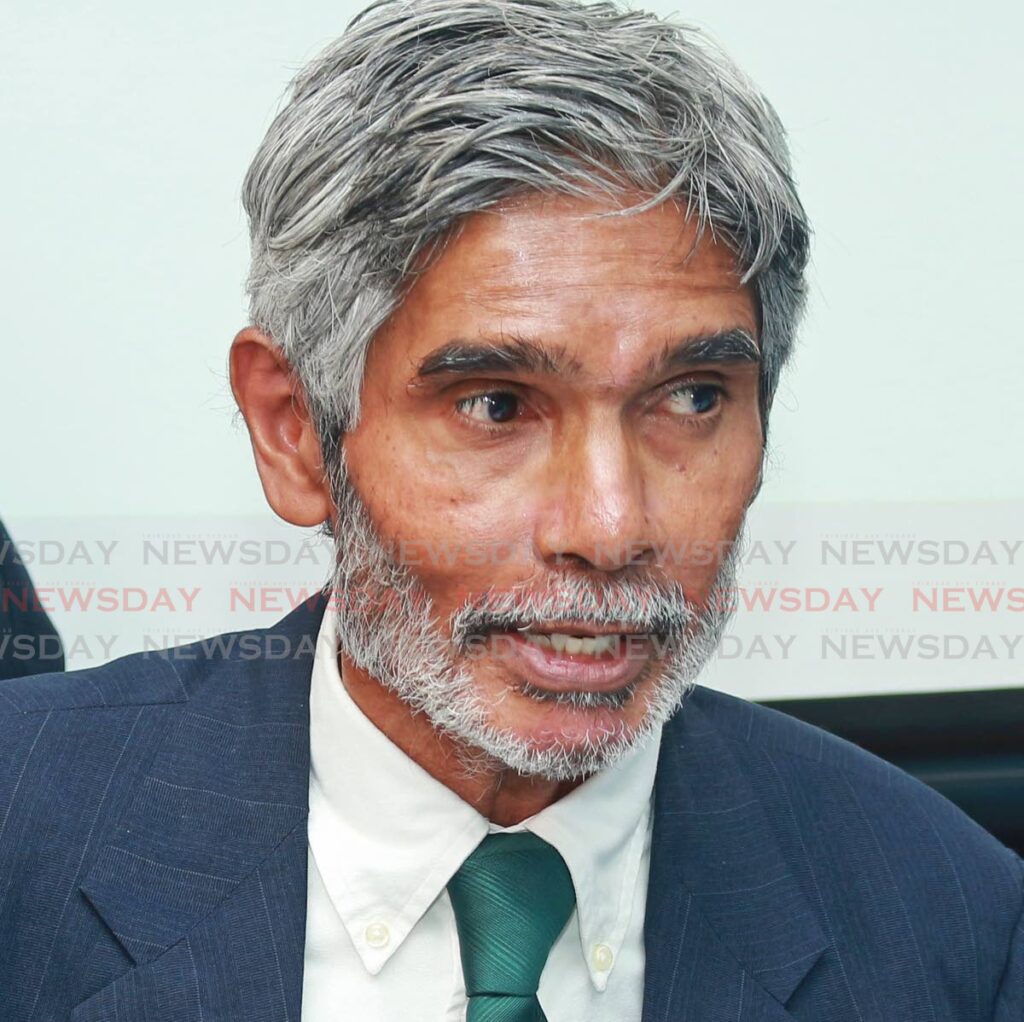Milei vs Imbert

WAYNE KUBLALSINGH
A NEW Argentinian president will be sworn in on December 10. His name is Javier Milei. During his spectacular election campaign, he appeared on stage with a chainsaw, scribbled his signature on a banner-sized US dollar bill, tore off the name-tabs of government ministries from a whiteboard, and flung them away. He called all socialists, leftists, “leftards,” “parasites” and “mierda” (sh**). He energetically vowed to: (a) scrap the central bank; (b) dollarise the economy; (c) chainsaw several government ministries; (d) cut off state relations with “communist” countries, including China, Venezuela, Brazil. This was his histrionic response to Argentina’s plague of massive public debt, hyperinflation, unemployment and poverty.
Some Argentinians are on tenterhooks. They are not sure if Milei will get the job done. But they have suffered so devilishly, their peso virtually destroyed, their pockets being wiped out daily, they are willing to try anything. Milei is a breath of fresh air. He is dynamic and effervescent.
International financial institutions, the World Bank, the IMF, no doubt shocked and taken aback, are being quietly diplomatic. Nobody wants to criticise publicly, lest Milei succeeds and they are wrong. Or risk putting a damper on what appears to be a resurgent moment in Argentinian history.
However, to succeed, Milei will have to alter or ditch his rascal policies (A, C and D above), the kind of extravagant and daredevil imprudence which derailed Argentina’s economic promise in the first place.
The central bank is not the real problem for Argentina. The bank has been a cash cow for politicians, dipping their hands into the till indiscriminately. Not good. At the moment it is bankrupt, subsisting on an IMF loan of US$36 billion. The bank needs to be insulated, achieve independence, institutional quality.
Our own Trinidad central bank is comparatively stable. It holds and curates cash, capital stock and non-cash assets like equities, EFTs, bonds. It supports monetary policy in favour of appropriate interest rates, the exchange rate, employment, and inflation control, as far as its knowledge permits.
Milei has also promised to chainsaw 11 out of Argentina’s 19 government ministries. Sports and Tourism – afuera! Culture – afuera! Environment and Sustainable Development – afuera! Science and Technology – afuera! Education – afuera! They are inefficient, wasteful, propagandistic or "woke." But this is populist hyperbole. He can’t be serious.
Although our own public servants mop up the largest chunk of government revenue (about $19 billion or 40 per cent), or may be badly managed, or may be inefficient, our nurses, doctors, teachers, police, administrators and others work against the odds, in often labyrinthine systems, to perform critical functions.
To forego government agreements with countries such as Brazil, Venezuela and China is reckless. Governance is not only serious business, it ought to be scientific business. Running your economy on the basis of ideological, ethnic or religious feelings are recipes for disaster.
Milei is a trained economist. He calls himself a libertarian (inspired by the Austrian School of Economics) which advocates "freedom" on economic and monetary matters. But you cannot run an economy on "freedom," It was American freedom from the gold standard in 1971 (Bretton Woods) and subsequent deregulation measures which precipitated its stock market crisis in 1987; and its scandalous mortgage-backed security housing crash in 2008.
Milei’s dollarisation plan, given the current dystopian economy, will take a couple of years to materialise. Although other Latin American nations have dollarised, Panama in 1904, Ecuador in 2000, and El Salvador in 2001, Argentina’s central bank is US$-challenged. Where are the US dollars going to come from to replace the peso? In pockets, businesses, or commercial banks?
Tagging your currency to the US dollar, when a large part of the world is de-dollarising (BRICS), and where the US Federal Reserve is always fidgeting with interest rates, is restrictive. Additionally, dollarisation does not solve the current level of diminished growth (-4.9 per cent).
Meanwhile, in his 2024 budget, Minister Colm Imbert has claimed fiscal “discipline,” “prudence,” “consolidation” and “buffer” from external and internal shocks. Although public debt stands at a towering 70.9 per cent of GDP, and the budget as a whole is inflationary, he should be awarded an A for fiscal iron-fistedness.
Surely, Imbert is the nimblest minister on the books. In the current fiscal/budget cycle, 2015-2023, saving government finances from the latter-day splurge of the last administration, he has, with his deft fiscal palms, rubbed down the public pocket, finding every fob, black cent and dollar sewn up in our hems.
Imbert has stamped our financial and economic life with an IMF imprint, without calling it IMF. Making, finally, in 2023, the bond holders, the credit-rating agencies, and his government happy. His budget is high on tax efficiency, low on government efficiency. The property tax is drip-by-drip water torture.
Milei, unless he radically alters A, C and D above, will exacerbate Argentina's financial woes. The proper approach to financial and economic leadership in the modern nation-state is to screw down the bolts, get the macroeconomic fundamentals right. Once this is done, governments could pursue expansive, even radical, growth drives. Mistakes, hopefully minor, would be corrected.
Milei’s macroeconomic fundamentals are reckless. Mr Imbert’s Budget 2024 growth picture is abysmal. There are more long-standing plans "in the pipeline" than there are tunnels under Gaza. Unless waiting on seven trillion cubic feet of gas from the Manatee and Dragon gas fields to give us a reviver in 2028 is his Government’s idea of growth.


Comments
"Milei vs Imbert"